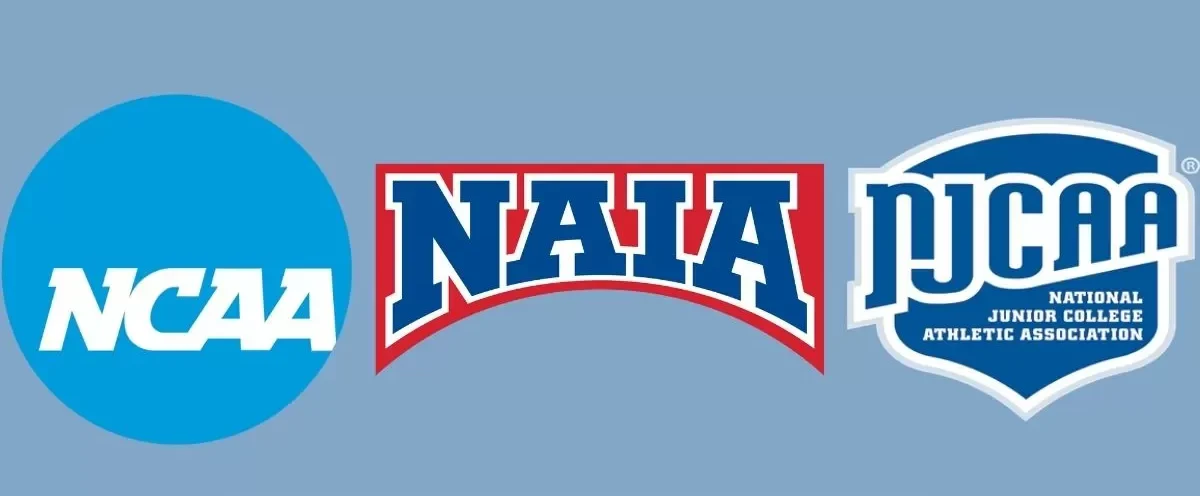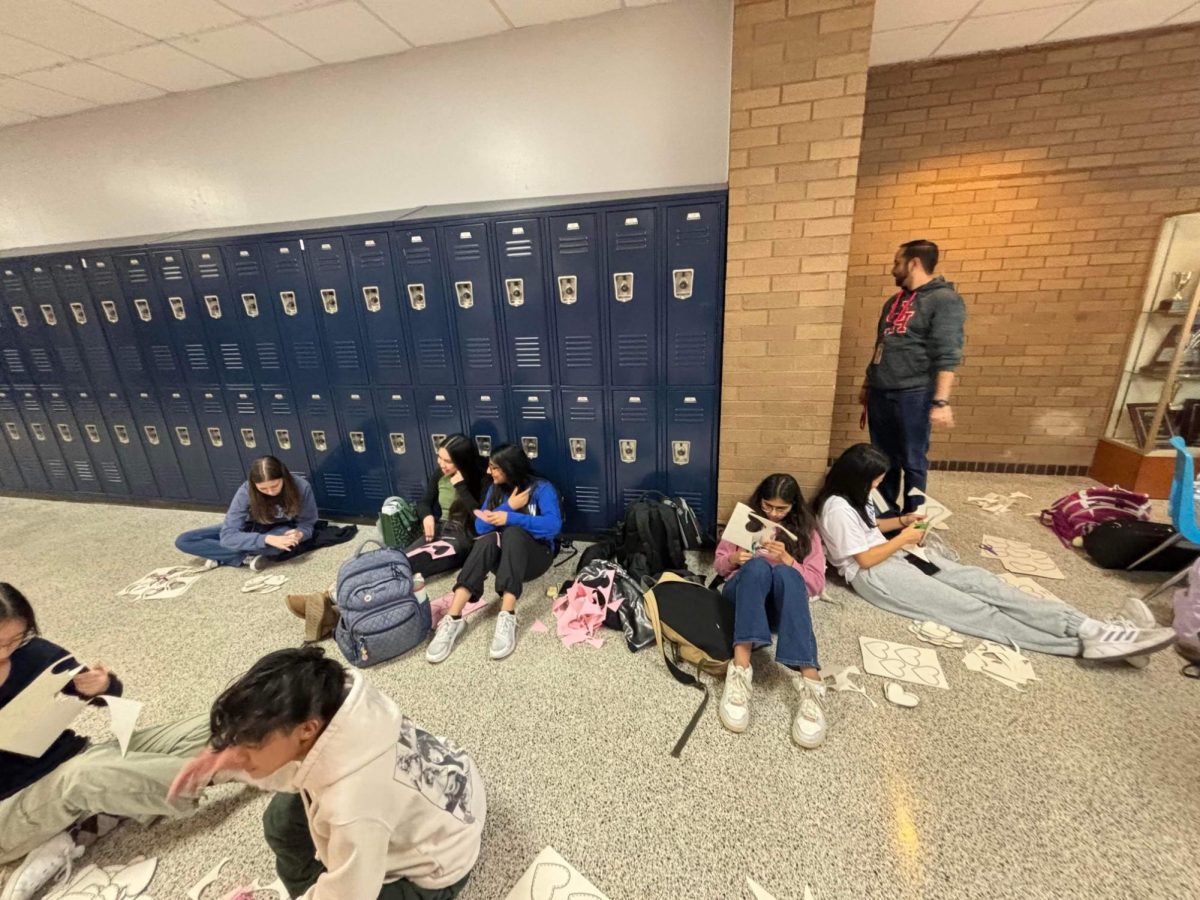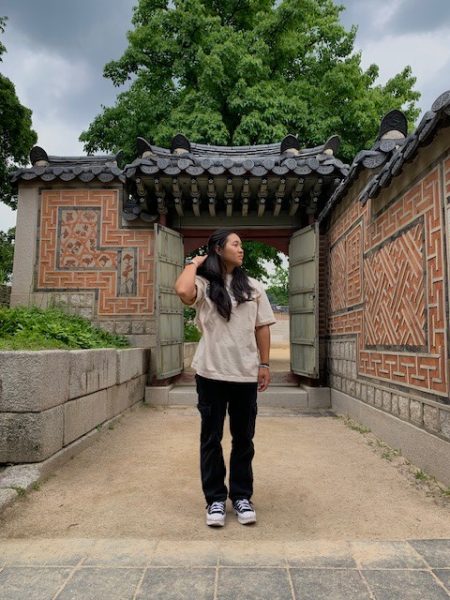According to the NCAA, of the nearly 8 million students participating in high school athletics in the United States, only 495,000 will compete at NCAA schools. Of that group, only a fraction will become a professional or Olympic athlete.
When a student-athlete realizes they want to play beyond high school, there are many steps they have to take to make their dream a reality. The student-athlete not only has to perform well in their sport, they also have to keep up with their academics. They have to “sell” themselves to college coaches, get scholarships, and work hard physically and academically, which in turn can create a lot of stress and pressure.
In this piece, you will learn tips and advice if you want to become a student-athlete in college.
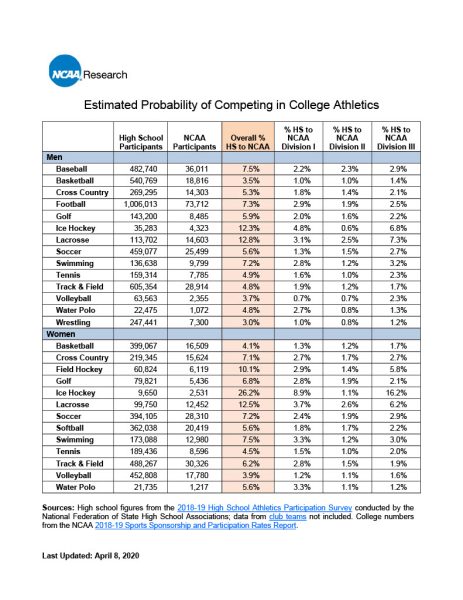
There are three different college athletic divisions:
- The National Collegiate Athletic Association (NCAA). The NCAA is a nonprofit organization, which sanctions college sports for all its member schools and student-athletes.
- The National Association of Intercollegiate Athletes (NAIA). NAIA schools are most comparable with NCAA II and NCAA III schools in size, enrollment numbers, and level of competition. However, there are exceptions with some of the strongest NAIA programs competing on a level comparable to D-I schools.
- The National Junior College Athletic Association (NJCAA). The NJCAA governs intercollegiate athletics for community colleges and junior colleges; 2-year colleges which offer associate degrees before a student transfers to a 4-year university and completes an undergraduate degree.
To find out more about each college division click here.
You have to remember, that if you want an athletic scholarship, only NCAA DI and DII schools, NAIA, and NJCAA will offer them. NCAA DIII colleges don’t offer athletic scholarships because they are more academically focused. The only money you could get from a DIII school is academic/merit scholarships, which is why it is important to have a good academic standing.
The first thing you need to do is research. It is important to go to a college or university that fits you. Go to a college where you can see yourself going to and living there for four years. Consider the school size, its location, the weather, and the atmosphere. Is the university private or public? Do you need a car or can you walk? Does it have the major you want? Can I stack my athletic and academic scholarships? Many important factors go into choosing the college you want to go to. Another thing to research is the coach and the team. Does the coach have a strong background in the sport? What is the team culture like? These questions may be hard to answer which is where reaching out to the coach comes in.
After researching, make a list of the colleges/universities you want to attend and reach out to the head coach. Draft an email to the coach introducing yourself.
Here is a templet of an email:
Hello (Coach’s Name),
My name is (your name). I am a (graduation year) (sport) at (high school) in (City, State) After doing some research, I’m interested in (name of college/university) because I plan to study (major you plan on doing) which (name of college/university) offers. I’m also interested in (name of college/university) because of the strong and growing (sport) program. Seems like an awesome place to play!
Do you have a need for a (grad year) (sport)?
Attached is my (sport) highlight video and (sport) resume.
For reference, feel free to email (High school coach’s name), head coach for (Men’s and/or Women’s) (sport) at (high school name). Here’s his email: (high school coach’s email).
Sincerely,
(Your Name)
(Personal email/personal phone number)
Attach resume and highlight video here
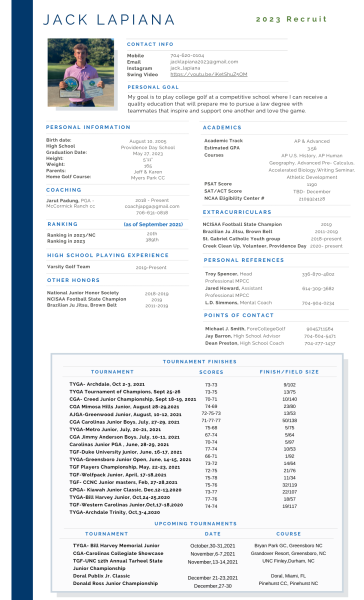
You can search for examples of a specific sports resume or email template if you don’t know how to build or start one.
Another way to get yourself known by college coaches is recruiting websites such as Next College Student Athlete (NCSA), which is a website that connects middle school and high school athletes with college coaches. This is a great place to start putting yourself out there to college coaches. To learn more about NCSA click here. You could also create an Instagram or Twitter account to highlight you and your accomplishments. Follow college coaches and/or teams that you are interested in and try to get in touch with them. You could also follow recruiting accounts so they can help you get yourself known to college coaches.
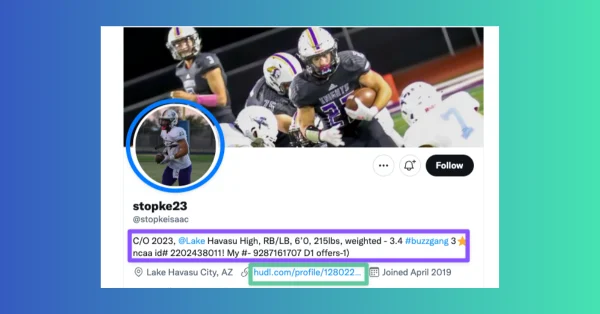
https://productiverecruit.com/blog/how-to-use-twitter-for-college-recruiting
Once you get a reply from a coach, try following up with them every so often and update them on your progress. Mention any games or tournaments and the results. Also, try to set up a phone call or video call with the coach to ask questions you may have for them. The coach will have questions for you, so make sure you have questions to ask the coach.
Here is a list of some questions to ask a college coach:
- How would you describe your team culture?
- How would you describe your coaching style?
- What resources are available on campus for academic support?
- What are some goals for your program?
- How do you see me contributing to your program?
- What does a typical day look like for your student-athletes in season?
- What are your off-season expectations?
- How do you choose the lineup of each event?
- What are your expectations for scores/stats/time/ranking?
- What is campus life like? What do students do for fun?
After talking with some college coaches, plan some visits. It is important to do a college visit so you can see what life would be like as an actual student. A college visit will help you learn more about the college academically and socially. You can ask questions that you have about classes, professors, majors, financial aid, and housing. During a visit, you could meet with the coach and players in person and learn more about the life of a student-athlete in college. Make sure you also try and meet with your admissions counselor and financial aid counselor so they can answer your questions about the school. It is important that you can see yourself living here.
Once you talk to the coaches and visit the colleges you are interested in, it’s now time to pick which college to commit to. It is stressful picking a college, but make sure the college you pick is what you think is best for you and your education.
I wish you the best of luck on this amazing journey to becoming a college athlete!!

